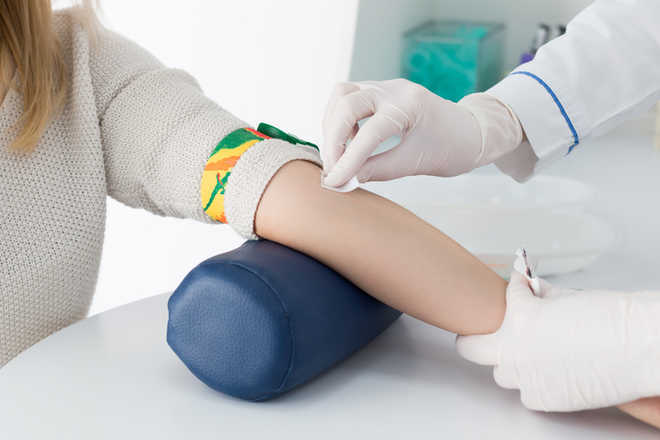
Photo for representation only. — istock.
London: Scientists have developed a quick and robust blood test that can detect liver damage before the symptoms appear.
The test developed by researchers from the University College London in the UK could address a huge need for early detection of liver disease.
It distinguishes between samples taken from healthy individuals and those with varying degrees of liver damage, researchers said.
The study, published in the journal Advanced Materials, describes the new method of detecting liver fibrosis, the first stage of liver scarring that leads to fatal liver disease if left unchecked, from a blood sample in 30-45 minutes.
"We hope that our new test could be used on a routine basis in GP surgeries and hospital clinics to screen people who face an elevated risk of liver disease, but don't yet show signs of liver damage to identify those with serious fibrosis, so that they can access treatment before it's too late," said William Rosenberg, a professor at UCL.
"This may open the door to a cost-effective regular screening programme thanks to its simplicity, low cost and robustness," he said.
Researchers at the University of Massachusetts in the US designed a sensor that uses large molecules called polymers, coated with fluorescent dyes that bind to blood proteins based on their chemical properties.
The fluorescent dyes change in brightness and colour, yielding a different pattern of fluorescence depending on the protein composition of the blood sample.
The team at UCL tested the sensor by comparing results from small blood samples (equivalent to finger-prick checks) from 65 people, in three balanced groups of healthy patients and those with early-stage and late-stage fibrosis.
They found that the sensor could identify different patterns of protein levels in the blood serum of people in the three groups.
"By comparing the different samples, the sensor array identified a 'fingerprint' of liver damage," said William Peveler, who completed the research at UCL.
"This method is known as a chemical nose, as it can recognise the difference between healthy and unhealthy blood samples without relying on known disease markers," said Peveler. — PTI.



























